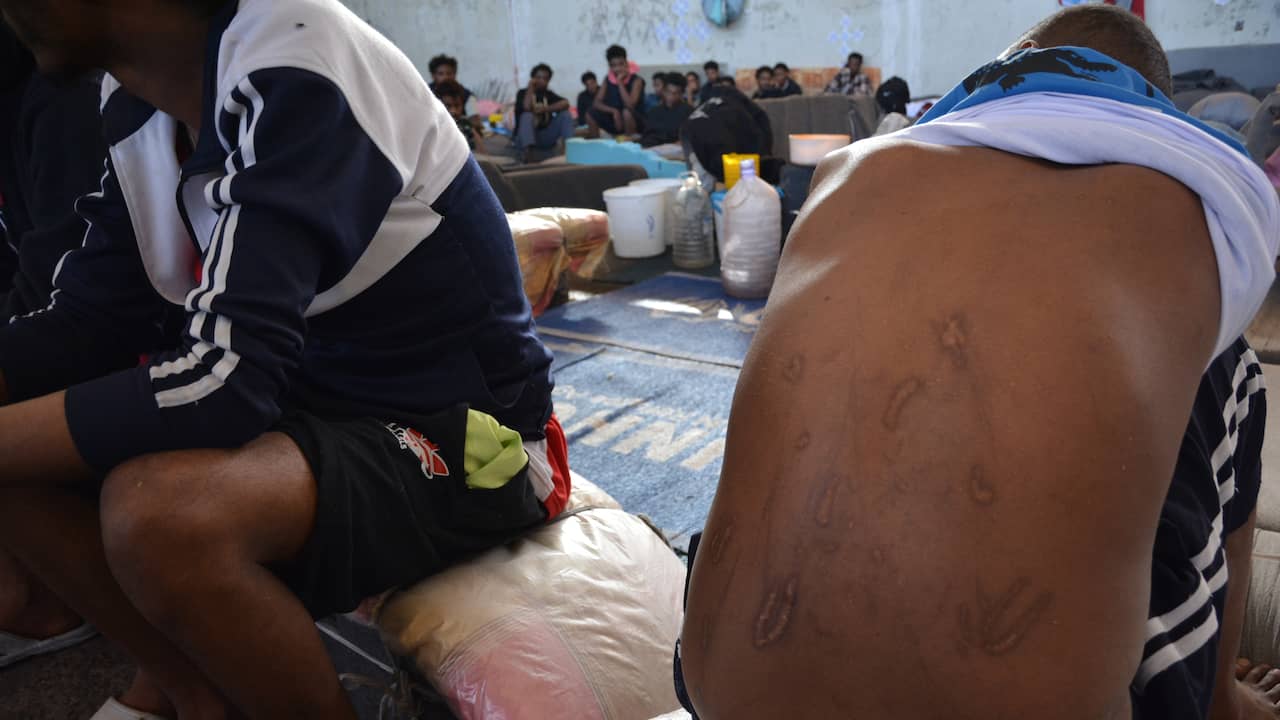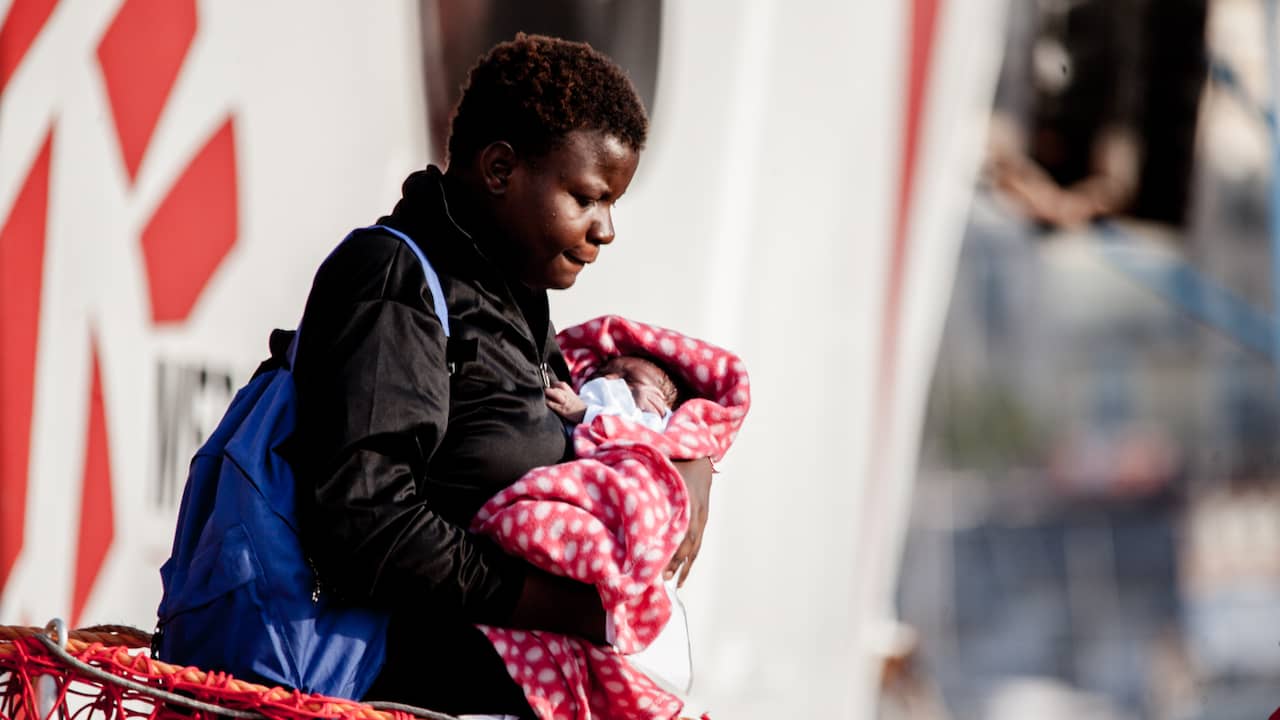A MSF team rescued 71 people from a rubber boat in the Mediterranean on Monday evening. At least thirty people are still missing, including five children and three babies. There is a very good chance that the missing persons did not survive, says Ellen van der Velden, operational manager of the MSF rescue work in the Mediterranean Sea, in conversation with NU.nl.
When the team of the medical aid organization Doctors without Borders got sight of the sinking boat, it was already a drama, says Van der Velden. The refugees had been in the water for 19 hours and people had fallen overboard and drowned.
The rescuers managed to get 71 people on board the Geo Barents. One of them, a pregnant woman, was resuscitated but pronounced dead shortly afterwards. A number of people have suffered chemical burns from being in a combination of diesel and salt water in the sinking boat. They have been brought to the mainland.
Three others had to be stretched aboard the Geo Barents because they could no longer use their legs. Some, including a mother with a baby, were in such bad shape that they flew to Malta for medical attention.
The refugees on the Geo Barents are not only physically weak, but are also mentally deteriorating, warns Van der Velden. They are traumatized, have to sleep close together, and are in mourning for family and friends. However, it may still be a while before they can go ashore. “Malta allows medical evacuations from time to time, but categorically refuses to let people ashore. The nearest port is then Italy. The compromise now is that we take them to Sicily.”
In 2022, 721 people have gone missing in the Mediterranean so far. Since 2014 there are 24,184.
On the run from degrading situations in Libya
As with almost all rescues that MSF carries out in the Mediterranean, this boat also came from Libya. In a recently published rapport MSF describes how cooperation between the European Union and the Libyan authorities in intercepting migrants and refugees in the Mediterranean Sea causes thousands of victims every year.
Many refugees intercepted in Libya have already been held in detention centers of local militias where they are mistreated, exploited and enslaved. Migrants are often sold to employers who force them to work without paying them because they have to pay off a so-called debt. Men often have to work in construction or as cleaners, women are in many cases forced into sex work, says Van der Velden.
The danger is that when the migrants and refugees in the Mediterranean are intercepted by the Libyan coastguard, they are immediately sent back to degrading detention centers, says Van der Velden. She warns against a vicious circle in which people are mistreated and tortured.
The refugees rescued by MSF on Monday were so desperate that they even called the Libyan coastguard to come and rescue them. “Fortunately, we found them earlier”, says Van der Velden.
Degrading situations in detention centers in Libya.
Degrading situations in detention centers in Libya. Photo: Doctors Without Borders
–
–
–
–

